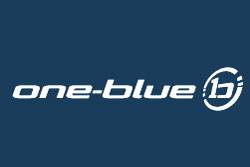Europe's online source of news, data & analysis for professionals involved in packaged media and new delivery technologies

1-year-old One-Blue unveils five steps to effective patent licensing
Established by the leading Blu-ray, DVD and CD product IP holders, the patent pooling organisation One-Blue marked the first anniversary of its Blu-ray Disc product licensing programme on 1 July 2012.
A one-stop shop for patent licenses from the leading providers of Blu-ray Disc technology, One-Blue operates a pool of a large number of licensors and more than ten thousand BD product patents that are essential to upholding BD, DVD, and CD standards. One-Blue offers licenses for various BD products including: players, recorders, playback drives, recorder drives, software, PCs, pre-recorded discs, and recordable discs.
As a result of this undertaking, One-Blue has developed a series of best practices for other industries to consider as they create their own patent pools. "By following these steps, companies can ensure that their patent pool is governed fairly, offers a level playing field for licensors and licensees, lowers costs for all parties, and is able to take swift enforcement action when required," says the organisation.
The power of independence - Fifteen patent owners are licensors in the pool operated by One-Blue, namely Cyberlink, Dell, Fujitsu, Hewlett- Packard, Hitachi, JVC Kenwood, LG, Panasonic, Philips, Pioneer, Samsung, Sharp, Sony, Taiyo Yuden, and Yamaha. Five of these companies are also shareholders in One-Blue, LLC, but One-Blue operates the pool as an independent licensing entity. For complex markets with diverse patent environments, this model allows a pool to more equitably manage the licensing process and removes possible points of contention between licensors. Also, by moving licensors away from the front lines of enforcement action, an independent entity has the autonomy to aggressively enforce patent rights anywhere and against any party.
Required participation in enforcement - In the event an enforcement action is warranted, all members of the pool agree to participate by making their patents available for use by legal counsel. This prevents some members from opting out of enforcing their patents, while at the same time enjoying the pool?s benefits.
Per-batch licensing - All too often, companies sign a license agreement but fail to abide by its terms. A company that refuses to pay royalties increases the cost of business for all other parties while giving itself an unfair advantage. Per-batch licensing closes this loophole by licensing only the products shipped, not the company itself. Each product shipment carries licensing documentation and registration logos with serial numbers that can be verified by customs officials, distributors and retailers. While it may seem like an extra step, per-batch licensing ensures licensees pay for what they ship.
Pre-netting - In many cases, licensees hold pre-existing patent licenses with various patent pool licensors. Pre-netting takes these pre-existing licenses into account and subtracts what would be due licensors that have the granted pre-existing licenses when calculating royalty payments. This step ensures that licensees pay only for what they use and encourages broader participation in the pool.
Patent weighting - Not all patents are created equal. One mistake patent pools often make is to ignore this fact and assign the same worth to each patent in the pool. Not only does this approach reward licensors whose essential patents may be more valuable, it also discourages a patent arms race in which licensors are incentivised to roll as many less valuable patents into the pool as possible in order to inflate their royalty share.
One-Blue patent licensing is administered by One-Red, a joint venture between Philips, Sony and Pioneer that began operations on 1 July 2012. One-Red offers patent licenses on behalf of LG, Philips, Pioneer and Sony for DVD products.
Story filed 18.07.12




















